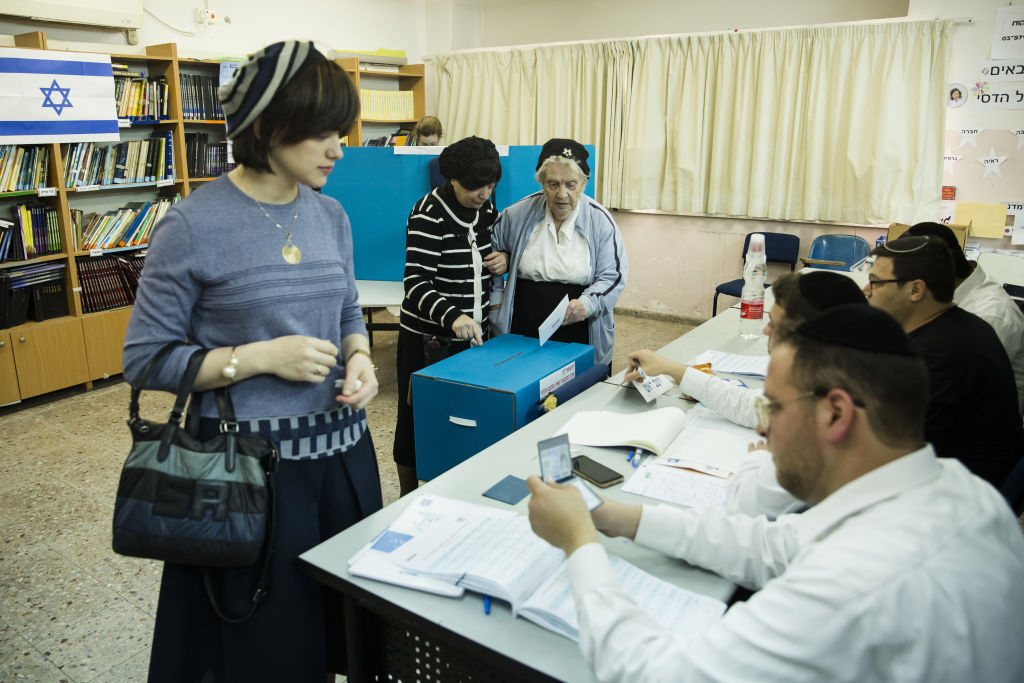On Sunday, Beto O’Rourke claimed that Israeli Prime Minister Benjamin Netanyahu doesn’t ‘represent the true will of the Israeli people.’ Israel is a democracy in which every citizen has the right to vote, a fact of international trivia apparently lost on O’Rourke. Although it’s easy to criticize Bibi for many of his recent remarks — and for his recent decision to welcome the racist Jewish Power party into the mainstream, it’s silly to argue that he doesn’t represent the true will of the Israeli people. The Israeli people have spoken for more than a decade: they like to have Bibi at the helm.
It’s possible the Israeli people will have something new to say in their election today. I spoke by phone with Lahav Harkov, senior contributing editor to the Jerusalem Post, to discuss what to expect today and in the coming weeks. Unlike our presidential elections, in which, after the votes are tallied, the only thing left to do is wait for the transition, the Israeli election actually happens in stages.
Today, the people will vote. There are 120 seats in the Knesset, and they are allocated proportionally to political parties based on the number of votes they receive. Harkov explained that there has ‘never been a pure majority,’ meaning that no single party has ever received more than half the Knesset seats, and by extension, the premiership. Instead, parties with large numbers of seats attempt to form coalitions. This process can take a while.
What does this mean for Netanyahu’s chances? Harkov estimated that he will ‘probably get a quarter of the votes and have to try to get a majority by allying with other parties.’ He’s in fairly good shape since for now, ‘most of the parties on the right have said they would stay with Netanyahu.’
In other words: Israelis going to the polls today who don’t vote for Likud but do vote for another party on the right are essentially picking Bibi as their Prime Minister.
After the election, Israel’s president will choose the person he thinks has the best chance to cobble together a coalition. That candidate might be the leader of the party with the most Knesset seats, or it could be another candidate deemed to have a better chance at bringing smaller parties together. If the original candidate fails to bring a coalition together, the president will task a second person. In theory, should they both fail, there would be another election.
I asked Harkov whether she thought Bibi’s decision to bring the Jewish Power party into the fold has changed minds in Israel. She told me this has been ‘a dirty election’ and that this is ‘one more in a a long list of scandals that has happened in this election,’ but that ‘there are people for whom this was the final straw with Netanyahu.’ Harkov told me she believes this has moved some votes, noting that ‘for a lot of Israelis, Kahane and his followers are beyond the pale.’
Netanyahu’s only serious competition comes from Benny Gantz and the Blue and White party, who are predicted to win around the same number of seats as Likud. But even if Blue and White earns more Knesset seats than Likud, the task of creating a coalition will be the real determining factor.
Much has been made in media reports about the importance of this election and how it is a referendum on Bibi and his legacy, but that’s only a fraction of the story. Netanyahu has proven himself to be a shrewd campaigner. He has also demonstrated an ability to sacrifice some of his own political beliefs in order to maintain coalitions and partnerships. Gantz is appealing because he is the anti-Netanyahu: not politically, where for now it seems they agree and disagree in basically equal frequency, but on a human level. Gantz is running on a platform of transparency and correctness; Bibi’s tenure has been marred by scandal and corruption.
But how do those sins measure against the successes he has had at Israel’s helm? Voters, and a group of smaller, king-making parties will decide. Someone should tell Beto O’Rourke.
Daniella Greenbaum Davis is a Spectator columnist and a Senior Contributor to the Federalist.


















